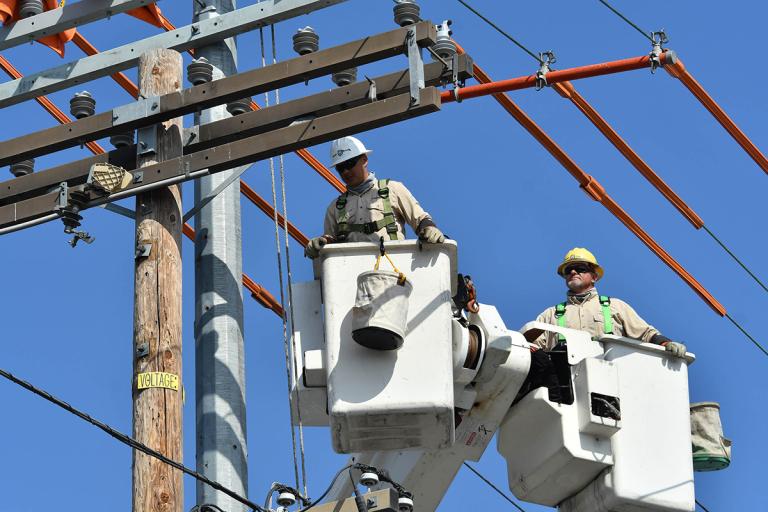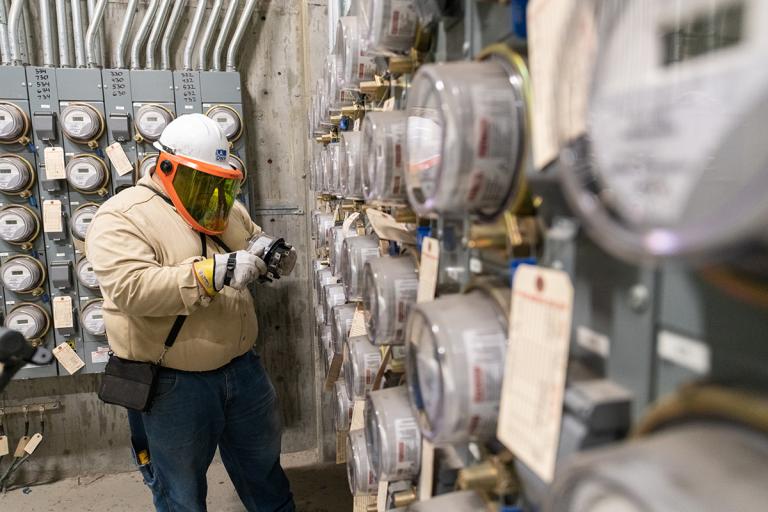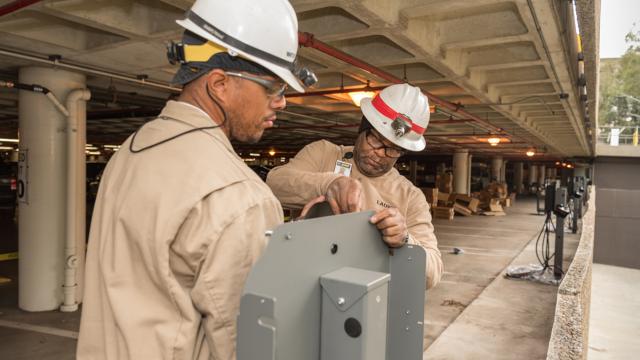If your facility houses LADWP-owned electrical equipment, then your property is subject to our rules regarding access. These rules help us ensure power reliability and reduce long-term maintenance and replacement costs. It is critical that our crews are provided access to your facilities when necessary to perform maintenance, inspections, and repairs.
While some of this work can be scheduled in advance, emergencies may demand that LADWP crews make unplanned visits to complete necessary work. As a result, it is imperative that crews have 24/7 access to LADWP-owned equipment. All relevant staff at your facility, including members of the security team, should be made aware that our crews need to be granted access in these emergency situations.
There are a number of reasons why our crews could need access to your facilities.
•Planned Inspection and Maintenance: Twice each year, crews conduct visual maintenance of station transformers. One of those visits includes the use of infrared and dissolved gas analyses to determine the health of the transformer and identify any appropriate maintenance or replacement work.
•During an Outage: On occasion, our crews need to enter industrial stations housed on commercial customers’ property to switch transformers to alternative energized lines. Without access to those transformers, crews may skip your facility, potentially resulting in extended restoration times if crews need to return to do the work later.
•Emergency Access: In an emergency, crews may need to shut off your power in order to prevent property damage or injury to members of the public.

At times, scheduled outages lasting from 10 to 12 hours may also be necessary to complete maintenance work. We understand that these outages are an inconvenience for your business. But this maintenance is important for ensuring reliable service and that your equipment is operating at optimal levels. In the long run, these scheduled outages are preferable to and more manageable than extended outages of 36 to 48 hours that could result from malfunctioning equipment if access for maintenance has been denied. And if equipment fails because a customer denied access, then they could also be held liable for damage to LADWP equipment.
Serious damage and financial consequences could result if a customer fails to provide the required access. In one situation, tests showed a transformer in a high-rise building in downtown Los Angeles was near catastrophic failure. Even so, the customer denied authorization for a scheduled outage to complete the necessary maintenance. Before maintenance could be performed, the transformer exploded. Eighty-one other customers in downtown Los Angeles lost power for two days as a result of the incident. And ultimately, that customer was found liable for all the lost revenue at the other 81 buildings without power. Had prompt and proper access for equipment repair been allowed, this incident could have been avoided.

We appreciate your compliance with our rules of access and your partnership in keeping LADWP-owned equipment functioning as safely and efficiently as possible. Contact your account advisor to learn more about our rules of access and how they impact you and your facility.
August 2022 Connections Newsletter
From industry trends and best practices to sustainability initiatives, our monthly Connections Newsletter provides valuable insights, updates, and resources to support our large business customers.
